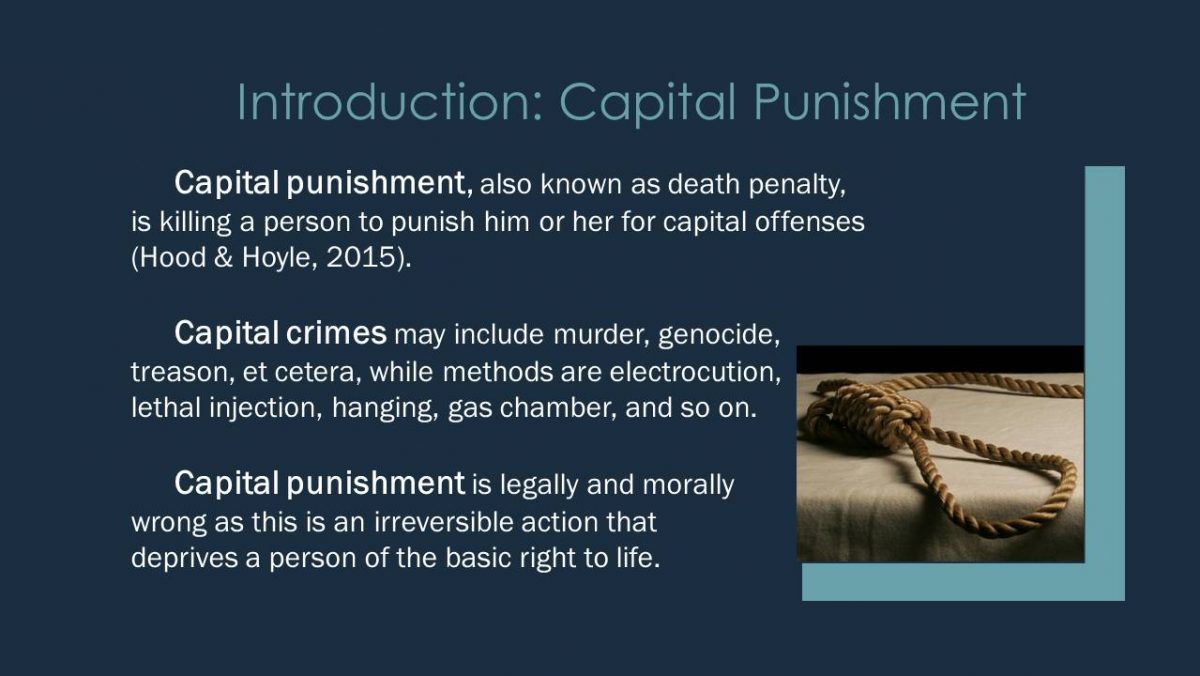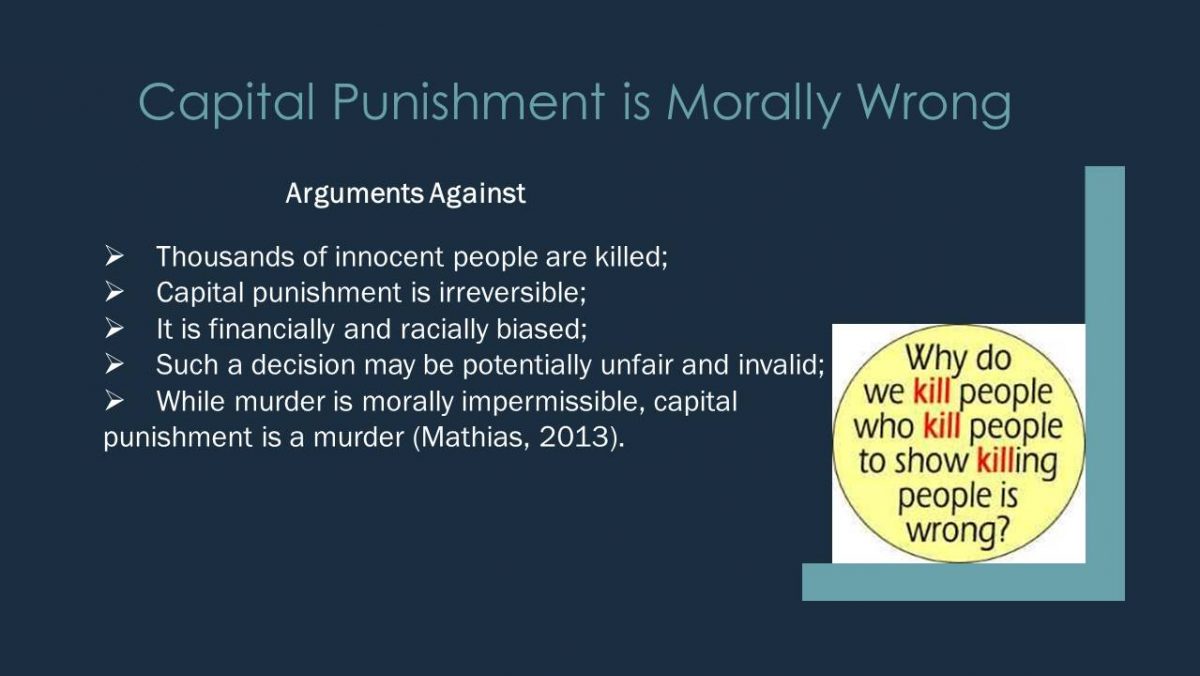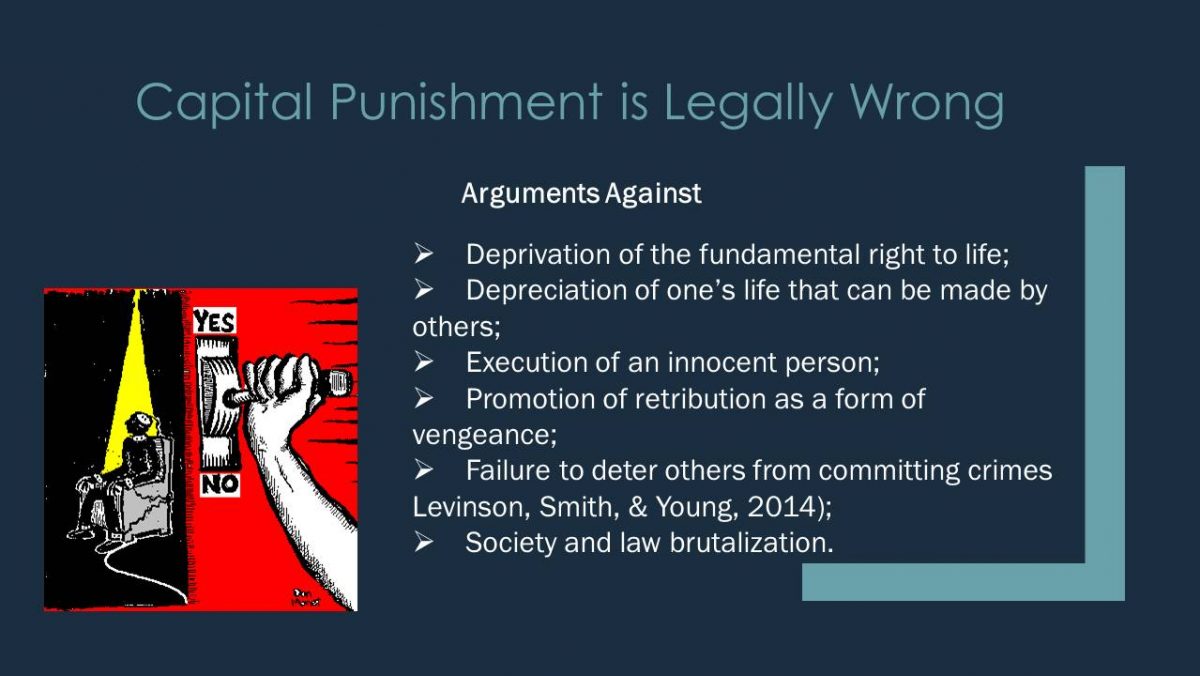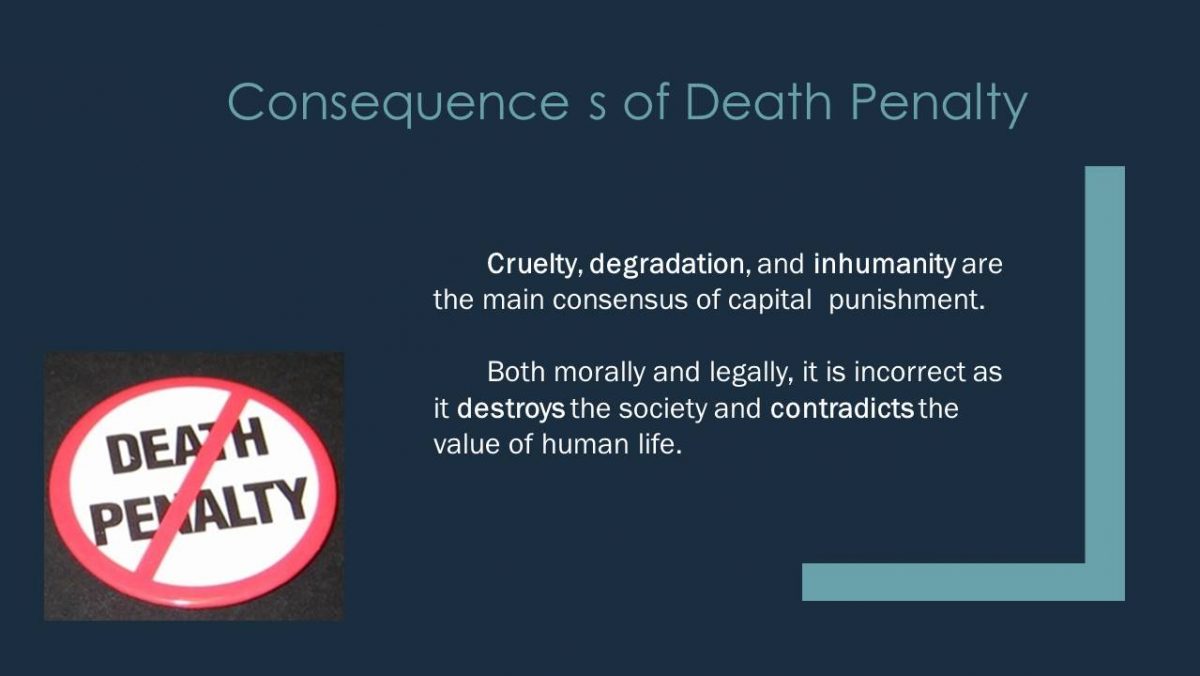Introduction: Capital Punishment
- Capital punishment, also known as death penalty, is killing a person to punish him or her for capital offenses (Hood & Hoyle, 2015).
- Capital crimes may include murder, genocide, treason, et cetera, while methods are electrocution, lethal injection, hanging, gas chamber, and so on.
- Capital punishment is legally and morally wrong as this is an irreversible action that deprives a person of the basic right to life.
The problem of the death penalty is complex and multifaceted. It affects the political, legal, moral, cultural, and other fields of life. The absence or presence of the death penalty may be considered an indicator of the level of culture and quality of life.

Capital Punishment is Morally Wrong
Arguments Against
- Thousands of innocent people are killed;
- Capital punishment is irreversible;
- It is financially and racially biased;
- Such a decision may be potentially unfair and invalid;
- While murder is morally impermissible, capital punishment is a murder (Mathias, 2013).
The death penalty is a measure of criminal punishment. Of all crimes, murder is the greatest degree of wrongfulness and immorality. Based on the principle of humanism, it can be argued that life is sacred, and this is the untouchable wealth of every person. As one of the commandments says: “do not kill”, the society should value the life of every individual, and every person should value his or her life and those of others.
From the point of view of a person who expects the death penalty, it is a catastrophe – the expectation itself, especially if a person is still young or if the crime is not so serious, is not worth such a serious punishment. The society destroys such criminals because it opposes itself to them. A lot of people die innocent due to the mistakes in investigations and court decisions. The invalid and unfair actions only worsen the crime rates and lead to the society brutalization.

Capital Punishment is Legally Wrong
Arguments Against
- Deprivation of the fundamental right to life;
- Depreciation of one’s life that can be made by others;
- Execution of an innocent person;
- Promotion of retribution as a form of vengeance;
- Failure to deter others from committing crimes Levinson, Smith, & Young, 2014);
- Society and law brutalization.
In terms of the legal aspect, one should stress that the right to life is fundamental, and no one can be taken away from it, even if a person is committed the murder. The capital punishment is the cruelest way of revenge. A person is not given any opportunity to atone for his or her guilt; therefore, the death penalty is regarded as an illegal usurpation of the natural right to life, which everyone inherently possesses, even the worst person. In other words, there is no equivalence and adequacy, and the death penalty may be equated to the most deliberate of murders.

Consequence s of Death Penalty
Cruelty, degradation, and inhumanity are the main consensus of capital punishment.
Both morally and legally, it is incorrect as it destroys the society and contradicts the value of human life.
The implementation of the death penalty fails to deter others from committing crimes even though it is the most severe punishment. As a result, the society becomes brutal and tends to be lacking the understanding of the human life value. It is important for people to carry an idea that the death penalty is always wrong as it is incorrect to kill.

References
Hood, R., & Hoyle, C. (2015). The death penalty: A worldwide perspective, (5th ed.). Oxford, UK: Oxford University Press.
Levinson, J. D., Smith, R. J., & Young, D. M. (2014). Devaluing death: An empirical study of implicit racial bias on jury-eligible citizens in six death penalty states. New York University Law Review, 89(2), 513-532.
Mathias, M. D. (2013). The sacralization of the individual: Human rights and the abolition of the death penalty. American Journal of Sociology, 118(5), 1246-1283.